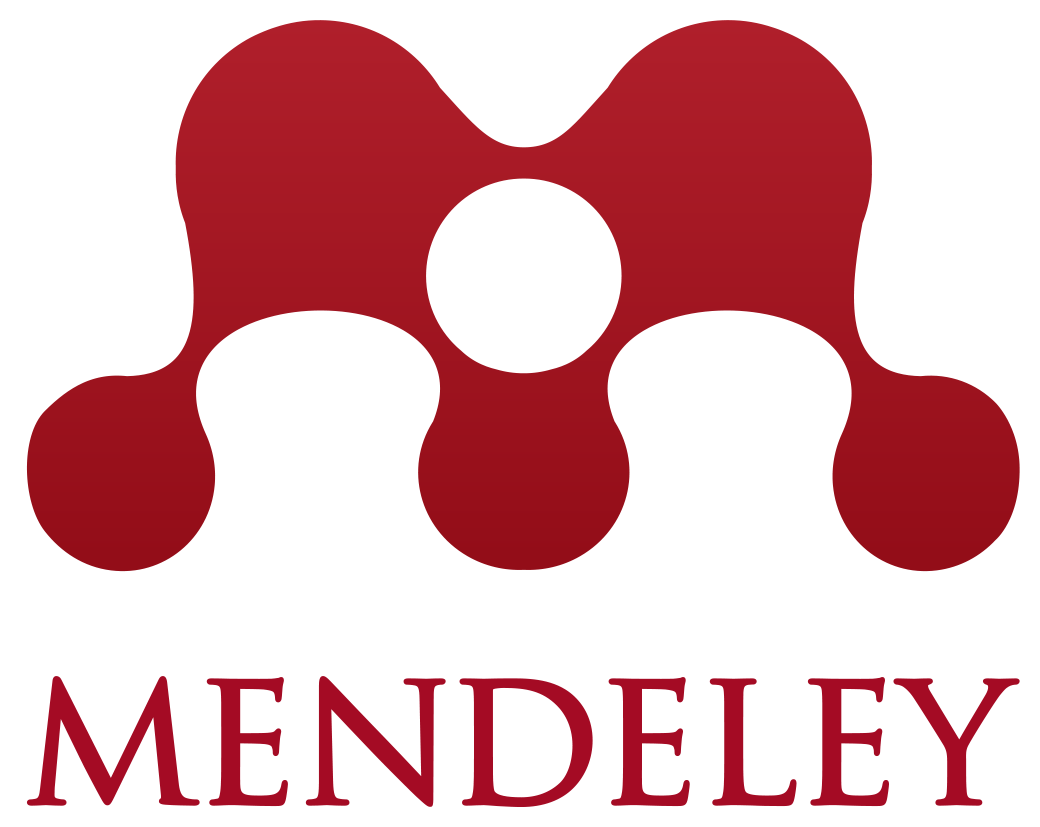Model of Discovery learning in Science Learning: Bibliometric Analysis of the Current State of the art and Perspectives
Abstract
This study aims to evaluate the most relevant themes related to discovery learning through bibliometric analysis, with its input using the keyword "Discovery learning in Science Learning". The Scopus index database is used in this study as the source database to conduct a bibliometric study for an academic article in the period between 1976 to 2022. This research also uses the VOSviewer app as a bibliometric analysis tool to visualize networks of authors, countries, journals, and keywords. This study found that the number of publications on discovery learning has grown periodically. This study also identifies the top ten authors, top ten affiliations, the top ten countries, and the top ten journal publications as sources in the field of discovery learning. Keyword analysis proves that the study of discovery learning in the last four decades has centred on themes related to computer science education, learning models, discovery learning, public understanding/outreach, high school/introductory chemistry, and constructivism. The bibliometric analysis presented in this study provides relevant information about the main theme learned about discovery learning in science learning, which is seen in the increase in creativity, learning outcomes, and student achievement in school teaching and learning activities.
Keywords
Full Text:
PDFReferences
Blatti, J. L., Garcia, J., Cave, D., Monge, F., Cuccinello, A., Portillo, J., & Schwebel, F. (2019). Systems thinking in science education and outreach toward a sustainable future. Journal of chemical education, 96(12), 2852-2862.
Budke, M., Parchmann, I., & Beeken, M. (2018). Empirical study on the effects of stationary and mobile student laboratories: How successful are mobile student laboratories in comparison to stationary ones at universities?. Journal of Chemical Education, 96(1), 12-24.
Cápay, M., Skalka, J., & Drlík, M. (2017). Computer science learning activities based on experience. In 2017 IEEE Global Engineering Education Conference (EDUCON) (pp. 1363-1372). IEEE.
Çetin, P. S., & Eymur, G. (2017). Developing students’ scientific writing and presentation skills through argument driven inquiry: an exploratory study. Journal of Chemical Education, 94(7), 837-843.
Chusni, M. M., Saputro, S., & Rahardjo, S. B. (2020). The conceptual framework of designing a discovery learning modification model to empower students’ essential thinking skills. In Journal of Physics: Conference Series, 1467 (1), 012015. IOP Publishing.
Chusni, M. M., Saputro, S., & Rahardjo, S. B. (2020). The potential of discovery learning models to empower students’ critical thinking skills. In Journal of Physics: Conference Series, 1464 (1), 012036. IOP Publishing.
Criswell, B. (2012). Framing inquiry in high school chemistry: Helping students see the bigger picture. Journal of Chemical Education, 89(2), 199-205.
Dass, K., Head, M. L., & Rushton, G. T. (2015). Building an understanding of how model-based inquiry is implemented in the high school chemistry classroom. Journal of Chemical Education, 92(8), 1306-1314.
Datta, M. S., & Gupta, S. (2000, December). Sensor-enabled computer-based training for augmenting science education. In Proceedings International Workshop on Advanced Learning Technologies. IWALT 2000. Advanced Learning Technology: Design and Development Issues (pp. 121-122). IEEE.
DeKorver, B. K., Choi, M., & Towns, M. (2017). Exploration of a method to assess children’s understandings of a phenomenon after viewing a demonstration show. Journal of Chemical Education, 94(2), 149-156.
Dwijayanti, L. M., Na’im, M., & Soepeno, B. (2020, May). The effect of discovery learning under mind mapping on students’ results of history learning at sman 1 tenggarang. In IOP Conference Series: Earth and Environmental Science, 485(1), 012003. IOP Publishing.
Easton, P. B. (2011). Hawks and baby chickens: Cultivating the sources of indigenous science education. Cultural Studies of Science Education, 6(3), 705-717.
Ertikanto, C., Rosidin, U., Distrik, I. W., Yuberti, Y., & Rahayu, T. (2018). Comparison of mathematical representation skill and science learning result in classes with problem-based and discovery learning model. Jurnal Pendidikan IPA Indonesia, 7(1), 106-113.
Fakayode, S. O., Pollard, D. A., Snipes, V. T., & Atkinson, A. (2014). Offering a geoscience professional development program to promote science education and provide hands-on experiences for K–12 science educators. Journal of Chemical Education, 91(11), 1882-1886.
Graulich, N., & Schween, M. (2018). Concept-oriented task design: Making purposeful case comparisons in organic chemistry. Journal of Chemical Education, 95(3), 376-383.
Kellamis, N. M., & Yezierski, E. J. (2019). Applying the next generation science standards to current chemistry classrooms: How lessons measure up and how to respond. Journal of Chemical Education, 96(7), 1308-1317.
Kerby, H. W., Cantor, J., Weiland, M., Babiarz, C., & Kerby, A. W. (2010). Fusion science theater presents the amazing chemical circus: A new model of outreach that uses theater to engage children in learning. Journal of chemical education, 87(10), 1024-1030.
Kerby, H. W., DeKorver, B. K., Cantor, J., Weiland, M. J., & Babiarz, C. L. (2016). Demonstration show that promotes and assesses conceptual understanding using the structure of drama. Journal of Chemical Education, 93(4), 613-618.
Khamidah, N., Winarto, W., & Mustikasari, V. R. (2019). Discovery Learning: Penerapan dalam pembelajaran IPA berbantuan bahan ajar digital interaktif untuk meningkatkan prestasi belajar siswa. JIPVA (Jurnal Pendidikan IPA Veteran), 3(1), 87-99.
Khusnul, K. (2019). The patterns of skills of science process in discovery learning: a case study of science learning in coffee plantation school. In Journal of Physics: Conference Series, 1211(1), 012105. IOP Publishing.
Kim, Y. L. (2013). Use of mobile technologies to promote scientific discovery learning in elementary school. Stanisław Juszczyk, 264.
Kobayashi, H. (2009). Collaborative discovery learning with hypothesis evaluation schema and acquisition of scientific literacy. Japanese Journal of Educational Psychology, 57(2), 131-142.
Kraft, N., Hong, X., Lusth, J. C., & McCallum, D. (2011, October). Experiences with CS2 and data structures in the 100 problems format. In 2011 Frontiers in Education Conference (FIE) (pp. F4G-1). IEEE.
Kyriazis, A., Psycharis, S., & Korres, K. (2009). Discovery learning and the computational experiment in higher mathematics and science education: A combined approach. International Journal of Emerging Technologies in Learning (iJET), 4(4), 25-34.
Mardiana, N. L. (2021). Optimalisasi penerapan model pembelajaran discovery learning dalam upaya meningkatkan hasil belajar mata pelajaran fisika materi gerak melingkar. Journal of Education Action Research, 5(2), 200-207.
Martin, A. J., Durksen, T. L., Williamson, D., Kiss, J., & Ginns, P. (2016). The role of a museum‐based science education program in promoting content knowledge and science motivation. Journal of Research in Science Teaching, 53(9), 1364-1384.
Martin, J. D., & Nock, K. A. (2018). A nonlinear,“sticky” web of study for chemistry: A graphical curricular tool for teaching and learning chemistry built upon the interconnection of core chemical principles. Journal of Chemical Education, 95(12), 2134-2140.
Martínez, G., Naranjo, F. L., Pérez, A. L., Suero, M. I., & Pardo, P. J. (2017). Meaningful learning theory in science education: Just another pedagogical trend. Journal of Sciene Education, 18(1), 19-23.
Moldwin, M. B., Fiello, D., Harter, E., Holman, G., Nagumo, N., Pryharski, A., & Takunaga, C. (2008). Using sunshine for elementary space science education: A model for IHY scientist–teacher partnerships. Advances in Space Research, 42(11), 1814-1818.
Napper, I. A. (1976). The development of science concepts in primary children by discovery strategies. Research in Science Education, 6(1), 27-43.
Nugent, C., & Wortman, K. A. (2020, January). Crumple Trees. In 2020 10th Annual Computing and Communication Workshop and Conference (CCWC) (pp. 0031-0037). IEEE.
Osman, K. (2012). Primary science: Knowing about the world through science process skills. Asian Social Science, 8(16), 1.
Pinkwart, N., Hoppe, U., & Gaßner, K. (2001). Integration of domain-specific elements into visual language based collaborative environments. In Proceedings Seventh International Workshop on Groupware. CRIWG 2001 (pp. 142-147). IEEE.
Pratt, J. M., Birk, J. P., Tierney, D. L., & Yezierski, E. J. (2017). Combining Novel Visualizations and Synthesis To Explore Structure–Property Relationships Using Cobalt Complexes. Journal of Chemical Education, 94(12), 1952-1959.
Putri, L. H., & Siahaan, P. (2020). Students’ scientific reasoning and argumentative abilities through levels of inquiry models based on socio-scientific issue. In Journal of Physics: Conference Series, 1521(4), 042100. IOP Publishing.
Rodríguez-Arteche, I., & Martínez-Aznar, M. M. (2016). Introducing inquiry-based methodologies during initial secondary education teacher training using an open-ended problem about chemical change. Journal of Chemical Education, 93(9), 1528-1535.
Ruiz, F., Prieto, M., Ortega, M., Bravo, J., Sanz, J., & Flores, J. (1996). Cooperative distance learning with an integrated system for computer assisted laboratory work. In International Conference on Computer Aided Learning and Instruction in Science and Engineering (pp. 220-227). Springer, Berlin, Heidelberg.
Sao Pedro, M. A., Gobert, J. D., & Raziuddin, J. J. (2010). Long-term benefits of direct instruction with reification for learning the control of variables strategy. In International Conference on Intelligent Tutoring Systems (pp. 257-259). Springer, Berlin, Heidelberg.
Seroglou, F., & Koumaras, P. (2001). The contribution of the history of physics in physics education: A review. Science education and culture, 327-346.
Strand-Cary, M., & Klahr, D. (2008). Developing elementary science skills: Instructional effectiveness and path independence. Cognitive Development, 23(4), 488-511.
Suardana, I. N., Redhana, I. W., & Yunithasari, N. P. M. (2020). Students’ critical thinking skills comparison in discovery learning based on constructing concept mapping and mind mapping. In Journal of Physics: Conference Series, 1521(4), 042089. IOP Publishing.
Taber, K. S. (2010). Straw men and false dichotomies: Overcoming philosophical confusion in chemical education. Journal of Chemical Education, 87(5), 552-558.
Tenorio, N. J., & Martínez, J. M. O. (2016). Análisis reflexivo de profesores de ciencias de secundaria en formación inicial en torno a diferentes secuencias didácticas. Revista Eureka sobre enseñanza y divulgación de las ciencias, 13(2), 423-439.
Triggs, R., Jarmon, L., & Villareal, T. A. (2010). An interdisciplinary design project in second life: Creating a virtual marine science learning environment. International Journal of Virtual and Personal Learning Environments (IJVPLE), 1(3), 17-35.
Velazquez-Iturbide, J. A., Debdi, O., Esteban-Sanchez, N., & Pizarro, C. (2013). GreedEx: A visualization tool for experimentation and discovery learning of greedy algorithms. IEEE Transactions on Learning Technologies, 6(2), 130-143.
Winarti, W. T., Yuliani, H., Rohmadi, M., & Septiana, N. (2021). Pembelajaran fisika menggunakan model discovery learning berbasis edutainment. Jurnal Ilmiah Pendidikan Fisika, 5(1), 47.
Wulandari, S., Fitri, R., & Syamsurizal, S. (2022). The influence of discovery learning model on critical thinking skills of student: A literature review. Jurnal Ilmiah Pena: Sains dan Ilmu Pendidikan, 13(1), 30-34.
Zendler, A., & Klaudt, D. (2015). Instructional methods to computer science education as investigated by computer science teachers. Journal of Computer Science, 11(8), 915.
Zirkel, P. A., & Barnes, M. B. (2011). Negligence liability of K–12 chemistry teachers: The need for legal balance and responsible action. Journal of Chemical Education, 88(8), 1057-1061.
Zoellner, B. P., Chant, R. H., & Wood, K. (2014). “But aren’t diesel engines just for big, smelly trucks?” an interdisciplinary curriculum project for high school chemistry students. Journal of Chemical Education, 91(4), 497-504.
DOI: https://doi.org/10.20527/jmscedu.v2i2.6804
Refbacks
- There are currently no refbacks.

This work is licensed under a Creative Commons Attribution 4.0 International License.

Journal Of Mathematics Science and Computer Education is licensed under a Creative Commons Attribution-ShareAlike 4.0 International License.









.jpg)
1.png)

